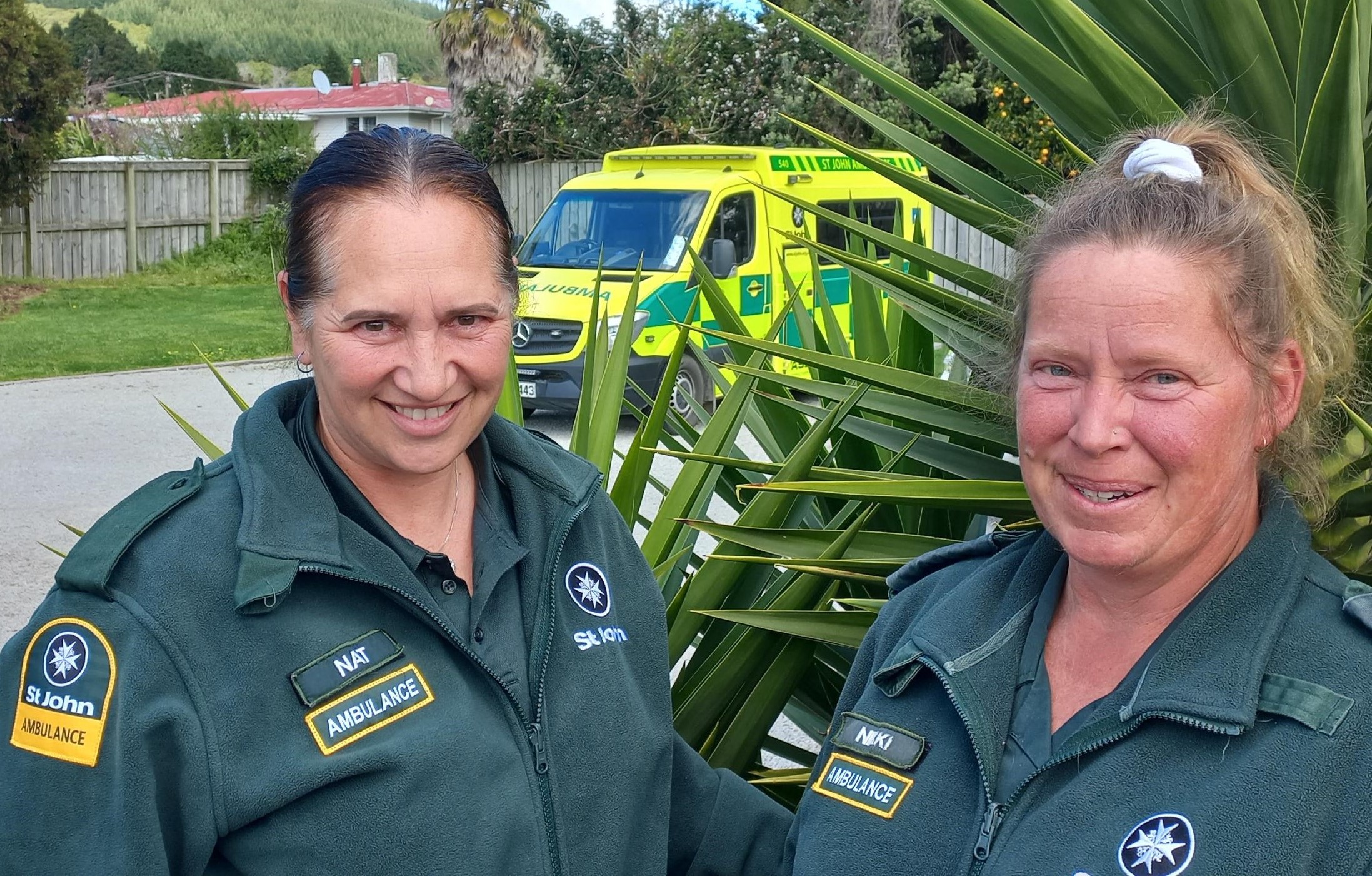
Hato Hone St John Te Kaha ambulance officers
By Aroha (Michelle) Ormsby-Brett, Māori Health & Equity Lead - Clinical Services, Hato Hone St John
Dan Spearing, National Equity Manager, Hato Hone St John
Tāmaki Makaurau/Auckland, Aotearoa New Zealand
'A tikanga Māori approach is crucial in achieving equity for Māori and improving health outcomes among the population.'
In Aotearoa New Zealand, issues around inequity and inequality in the health sector have evolved over the past 150 years or more to where they are today.
Inequity refers to unfair, avoidable differences arising from poor governance, corruption, or cultural exclusion. Inequality refers to the uneven distribution of health or health resources due to such factors such as geographic isolation and economic limitations.
Research shows that nationally Māori have poorer health outcomes than non-Maori particularly because of their interactions with the healthcare system.
This places an enormous cost on whānau and the wider community in terms of avoidable illness, suffering and financial expense from the loss of income and workdays, and increased health concerns and health expenses.
Overall, lower standards of health lead to poorer outcomes for Māori.
The first step towards closing the gap is understanding what it is and how it has come to exist in our country. We know that we can do better as healthcare professionals, and sometimes it’s as simple as talking to the patients we meet and treat and asking the right questions, listening to the answers, being aware and acknowledging our own unconscious biases, engaging in training opportunities, and asking for help.
Growing our ability to look through the lens of Indigenous people is critical. If we can’t do that then we will never have an impact. In tikanga Māori (customary practices and behaviours), everything in life is connected, including hauora (health). To achieve hauora requires balancing social, emotional, physical, spiritual, cultural and environmental wellbeing.
This philosophy has been the basis of Hato Hone St John five-year strategy Manaaki Ora, which we launched in 2022 with the aim of extending mahi (work) in all communities in Aotearoa New Zealand, focusing on equity to help everyone live healthier, happier and longer.
Historically, the public health system and those within it, including Hato Hone St John, has typically not been good at this. We are finally acknowledging that a tikanga Māori approach is crucial in achieving equity for Māori and improving health outcomes among the population.
Alongside efforts to engage our people, we’re taking innovative steps towards addressing inequity, including prioritising empowering our workforce with the cultural competency they need to deliver and adapt to our community’s needs.
We know that having the right care in the right place at the right time and by the right person is not always easy for isolated small rural communities where many Māori population reside. Therefore, we are finding new ways to empower whānau and support them to access the care they need.
Acknowledging this inspired Whakaōrite Whiwhinga Mahi, the ambulance service’s first region-wide targeted recruitment initiative for Māori and Pasifika living in Tairāwhiti and the Eastern Bay of Plenty areas, with the aim of creating a blueprint for other regions to follow.
As of January 2023, Māori representation in paid ambulance officer and paramedic positions at Hato Hone St John sat at 9.1 per cent.
Having tangata whenua (Māori people of the land) in our Hato Hone workforce who live, know, and love their communities is critical to enabling and advocating for equitable service delivery.
Whakaōrite Whiwhinga Mahi was co-designed alongside tertiary, local iwi, hapū, whānau and hauora Māori providers, with the mission of ensuring our health workforce better represents the communities they serve.
Dedicating resources and time to like-minded initiatives not only enhances equitable health service delivery but also equitable career opportunities.
This is the launch of a long-term commitment to find opportunities to continue this mahi (work) to boost Māori and Pasifika representation in our workforce. In addition to this, we are working with the wider health sector to improve this representation.
While reversing the inequity and inequality challenges accumulated over the past two centuries will take time and funding, Hato Hone St John remains committed to serving many more underserved communities each year and closing the gap on equity and equality.

Get unlimited access to hundreds of ACP's top courses for your professional development.
Join Now